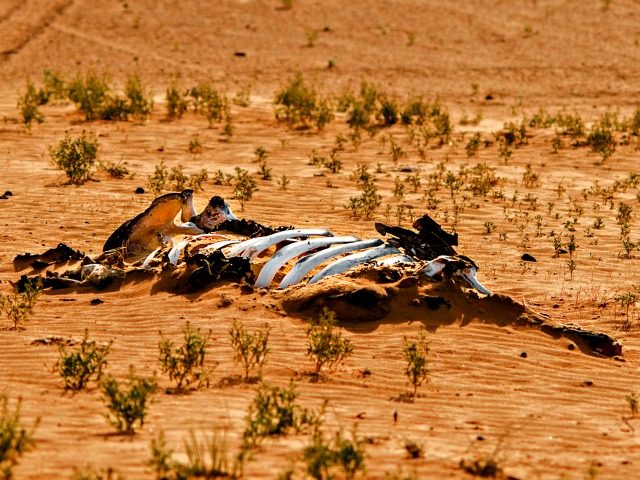The headline spread around the world Monday with the release of the United Nation’s three-year, 1,500-page report on biodiversity screamed that humans are killing the planet and its population of animals and plants, with as many as one million species facing extinction in mere “decades.”
However, mankind can stop the destruction through “transformative change” that could translate into globalism replacing national sovereignty and nations’ self-determination.
“The health of ecosystems on which we and all other species depend is deteriorating more rapidly than ever,” Sir Robert Watson, chairman of the Intergovernmental Science-Policy Platform on Biodiversity and Ecosystem Services (IPBES), which produced the report. “We are eroding the very foundations of our economies, livelihoods, food security, health and quality of life worldwide.” Watson added:
The report also tells us that it is not too late to make a difference, but only if we start now at every level from local to global. Through ‘transformative change’, nature can still be conserved, restored and used sustainably – this is also key to meeting most other global goals. By transformative change, we mean a fundamental, system-wide reorganization across technological, economic and social factors, including paradigms, goals, and values.
The introduction to the report said:
Despite progress to conserve nature and implement policies, the report also finds that global goals for conserving and sustainably using nature and achieving sustainability cannot be met by current trajectories, and goals for 2030 and beyond may only be achieved through transformative changes across economic, social, political and technological factors.
Although the U.N. presents its report as “scientific,” its authors and advocates promote climate change as settled fact and praise political movements that embrace manmade global warming ideology, including students skipping classes to protest.
Watson said:
We have already seen the first stirrings of actions and initiatives for transformative change, such as innovative policies by many countries, local authorities, and businesses, but especially by young people worldwide. From the young global shapers behind the #VoiceforthePlanet movement to school strikes for climate, there is a groundswell of understanding that urgent action is needed if we are to secure anything approaching a sustainable future.
The massive report’s introduction has pulled some of its findings for bullet points, including evidence of human progress that the report deems a threat:
• 300%: increase in food crop production since 1970
• 3%: increase in land transformation to agriculture between 1992 and 2015, mostly at the expense of forests
• +/-13 million: forestry industry jobs
• 50%: agricultural expansion that occurred at the expense of forests
• 1%: total land used for mining, but the industry has significant negative impacts on biodiversity, emissions, water quality, and human health
• +/-6,500: offshore oil and gas ocean mining installations (in 53 countries)
• 70%: proportion of cancer drugs that are natural or synthetic products inspired by nature
The media ran with the grim predictions of the report, including the Associated Press, which found “experts” to weigh in in favor of its findings:
“Humanity unwittingly is attempting to throttle the living planet and humanity’s own future,” said George Mason University biologist Thomas Lovejoy, who has been called the godfather of biodiversity for his research. He was not part of the report.
“The biological diversity of this planet has been really hammered, and this is really our last chance to address all of that,” Dr. Lovejoy said.
Watson’s remarks revealed the underlying philosophy of its proponents but also stated it would generate opposition.
“The member States of IPBES Plenary have now acknowledged that, by its very nature, transformative change can expect opposition from those with interests vested in the status quo, but also that such opposition can be overcome for the broader public good,” Watson said.
Follow Penny Starr on Twitter

COMMENTS
Please let us know if you're having issues with commenting.